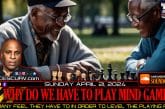More than a third of all Georgians fatally shot by law enforcement since 2010 were killed at home, an Atlanta Journal-Constitution/Channel 2 Action News investigation has found.
In roughly half of the cases, police responded to a call for help or to intervene in a domestic violence case — only to have the incident end with officers killing someone at the residence instead.
Tenisha Felio is still tormented by the 911 call to police that changed her family forever. Her husband, James, 27, a father of their three young boys and a man with no criminal record, had physically abused her overnight in December 2010. But when she called officers to come to the family’s Lawrenceville home he was lying asleep in the couple’s bed, naked and unarmed.
Ten minutes after police arrived, he had been shot dead. His wife watched in horror as her husband of six years died bleeding on the bedroom floor, the smell of gun smoke filling the upstairs.
“I called y’all to help me,” the anguished wife told police just hours after the shooting, according to an audiotape of the interview. “I called y’all for help. Not so I wouldn’t have my husband anymore. Not so my kids would not have their dad anymore.”
The wrenching details of the Felio case emerged in the most comprehensive examination of police shootings in Georgia to date. As in many states, no agency in Georgia tracks police violence, and little information exists about how often and under what circumstances these shootings occur. Reporters from the AJC and Channel 2 spent months analyzing law enforcement investigative files, medical examiners’ reports, media accounts and other public records to identify at least 166 fatal shootings by police in Georgia from 2010 through the end of June.
One of the clearest patterns identified was the number of Georgians shot by police at their homes or those of family members. At least 65 cases fell into that category, including Felio’s. None of the officers faced charges for the domestic shootings, although prosecutors are still reviewing at least six cases.
The concentration of police shootings at residences contrasts sharply with the narrative of police shootings nationally, which have focused on unarmed black men shot in the street.
The AJC and Channel 2 investigation of 65 citizens shot at home reveals that those police shootings cut across many racial and demographic lines. Forty-one of those shot were white and 21 were black. The oldest civilian shot by police was Joyce Brown, a 74-year-old white woman from Covington who left behind a suicide note and was shot by police holding a rifle in her front yard. The youngest was Dawntrae Williams, a 15-year-old black youth from Buford who police said was armed with a machete.
And while men are far more likely to be killed by police than women, six of the nine women killed by police since 2010 were killed at home.
Why police went to a residence differed in each case, but most involved situations where officers were called to stop suicidal people from killing themselves, to calm a domestic dispute, to stop a violent crime in progress, to arrest someone accused of a crime or to apprehend a suspect who’d fled home.
The analysis found the officers often found themselves in highly charged, volatile situations with potentially dangerous citizens. John Pearce stabbed his mother multiple times before being shot and killed by police in Gainesville. In another instance, a rape suspect shot and killed a Rockdale sheriff’s deputy before other officers shot and killed the suspect.
In 55 cases, police shot people who were armed at their homes, according to police and media reports. Thirty-five had guns, 17 knives and three used random household objects — a hammer, a gas can or a piece of lumber — to threaten officers.
But in eight cases, police fatally shot an unarmed person at the home, the AJC/Channel 2 analysis found. In two others, the person shot had a toy or non-lethal weapon, such as a BB gun.
Many shootings spared innocent citizens from someone threatening to harm others. But the AJC/Channel 2 analysis found that family members or others questioned the fatal outcome of the police response in about one-third of the shootings, as Felio’s family did.
In a highly visible Atlanta case, friends and family of a mentally disturbed Air Force veteran, Anthony Hill, demonstrated in DeKalb County just last week. Hill, completely naked and unarmed, was shot by DeKalb police March 9 at his apartment complex after police said he made a threatening move toward the officer.
Among the other cases examined by the AJC and Channel 2:
Holli Gooch, 34, was at her home in Cartersville on Dec. 16, 2010, when six officers in Bartow County came to her door in search of an acquaintance who did not live there. When Gooch told them they could not enter without a warrant, the officers kicked in her door in and illegally rushed into the home with guns drawn and no warrant, according to a lawsuit later filed by her family.
Gooch, who had a history of mental illness, panicked and ran into her kitchen, where officers said she grabbed a hammer and wielded it as a weapon, the lawsuit said. They shot her four times and the mother of two died on her kitchen floor.
Lori Knowles, 37, called Henry County 911 in a panic last July, screaming that she’d taken too much medication and needed urgent help, according to the audiotape.
Her anguished husband called 911 moments later en route to their Hampton home, warning the 911 operator that his wife had a pistol and beseeching police to wait for him at the house.
“Please don’t hurt her,” Ken Knowles begged, according to the audio recording. He was too late. Police had already entered the home and shot Knowles when she refused to drop her handgun.
Christopher Roupe, a 17-year-old Jr. ROTC student in Bartow County, was shot when he opened the front door of his home in Euharlee because the police officer, there to serve his father with a warrant, thought Roupe had a gun, according to GBI records. He was holding the controller to his video game.
James Clark was agitated and suicidal over the breakup of a seven-year relationship when Gwinnett Police were called to his Lawrenceville home. Clark retrieved a rifle and sat on his driveway while police repeatedly ordered him to put the gun down. They shot him multiple times when he stood up and walked toward them, according to police records.
Clark’s family insisted to police that the rifle in Clark’s hand was only a BB gun, but police retrieved a scoped hunting rifle from the scene. They arrested Clark’s father and his brother when they screamed at officers, demanding to know why the 32-year-old Clark had been shot.
“Let’s shoot a suicidal person?” Robert Clark, Clark’s brother, told Channel 2 after the shooting. “Is that how they deal with things here?”
Kevin Davis, 44, called police for help Dec. 29 after his girlfriend had been cut by his roommate. When a DeKalb police officer arrived at the apartment, he shot Davis’s dog in the doorway and then shot Davis. Davis, who had no criminal history, had grabbed his handgun when he heard the shot fired outside his front door. He was holding the gun and still on the phone with the 911 operator when the officer fired his weapon.
“Not only did he get shot in his own home, he was on the phone waiting for someone to assist him,” said his sister DeLisa Davis. “The police are called to protect and serve. This should have never happened.”
‘DEVIL IS RIDING YOUR BACK’
Earlier this summer, Tenisha Felio moved with her three young sons to California, hoping the West Coast would offer the family a fresh start. She holds onto a collection of family photos that suggest happier times. Yet as she leafs through the images, there is sadness, too, shards of a family that can never be pieced back together.
The collection shows her late husband smiling over a nursery cart in the hospital as he gazes at their first-born swaddled in a blanket. Another shows him in front of a modest Christmas tree in their living room, holding up one son who can’t yet walk. James and Tenisha smile in a studio portrait in another. One of the last photos taken shows the family on a YMCA soccer field where he coached his son’s team.
“He was the best dad ever,” Tenisha Felio said. “I had never seen anything like that in my life. All our friends, his older friends, would come to the house and be like, ‘Oh my God, you got to make me step up my game.’”
James grew up in New Orleans; Tenisha on the Gulf Coast of Mississippi. The couple moved to Atlanta after Hurricane Katrina, in part, because she had relatives here. James drove a truck but always tried to get home for family events or regular Saturday family outings centered on their kids. When the Atlanta wing of the family needed someone to learn how to barbecue so they could have regular weekend social gatherings, James took the lead.
Children didn’t come easy. Tenisha had two miscarriages before she gave birth to the couple’s first child in 2006. In quick succession, the couple had two more boys the next few years. Having grown up in a tough neighborhood in the Big Easy, James chose their neighborhood in Lawrenceville for the schools and the family environment, Tenisha said. He wanted a better life for his sons.
She described him as a good husband and a good partner who was calm, laid back and dependable. On the rare occasion they argued, the issue resolved relatively quickly, and they rarely raised their voices during disagreements, she said.
“I think I made him better and he made me better, and it just fit,” she said.
But in the weeks leading up to the fateful 911 call for help on Dec. 11, 2010, Tenisha Felio said she noticed sharp, unexpected changes in her husband. Usually talkative, he had moments where he was quiet and seemed distant. Sometimes, she had to call his name several times before he responded, according to sworn statements in a lawsuit she later filed. James Felio described how he heard her voice, but something prevented him from responding, she said in her suit.
“When you see me caught, just start praying for me,” he told Tenisha, according to her deposition. Growing up in New Orleans, Felio told his wife that they had a saying for such moods. It was like, he said, “the devil is riding your back.”
‘NOT IN HIS RIGHT MIND’
Just days before his death, James Felio alarmed his wife when he tried to strangle her on a Monday afternoon. It was the first time in their marriage that he ever physically abused her, she said in her deposition.
Tenisha Felio testified that she told his mother about the out-of-character behavior, hoping that she would visit and find out what was wrong with him. Felio’s mother suggested taking him to a hospital, Tenisha Felio said, and was arranging to come to Atlanta.
Then on Friday night, after the couple had watched a movie with friends, Tenisha Felio went to bed. She woke at 1 a.m. on Saturday Dec. 11, when her husband struck her while she was sleeping, according to her deposition.
Off and on for several hours, he physically abused her while their sons slept in a nearby bedroom, according to her testimony. He struck her with a shower curtain rod, hit her and pushed her around. He tried to strangle her again but eventually they laid down in bed and he went to sleep around 5 a.m.
As he was sleeping, she called Gwinnett 911 for help. She also asked a nearby cousin, Anita Flowers, to come to the house.
When Lawrenceville Police Officer Christopher Hyatt and Sgt. Karl Hydrick arrived at the modest two-story duplex at 797 Charleston Court, Tenisha Felio met them in the driveway. She told officers that James was “not in his right mind,” she said, and she wanted to get him to a safe place — either to a hospital or to jail — until his family arrived and they could figure out what to do about his sudden mental breakdown.
The officers instructed her to retrieve the children from their second-floor bedroom and went upstairs to the couple’s master bedroom. They found James Felio sleeping on the couple’s mattress set, which was on the floor because the family had only recently moved in.
Tenisha Felio witnessed what happened next, she told an investigator later that morning.
She heard James say, “Oh, the police are here,” when the officers entered the bedroom and woke him up. James had been sleeping in the nude and she saw Sgt. Hydrick toss a pair of pants at him. She watched the officers wrestle with James on their bed, saw a Taser in Sgt. Hydrick’s hand and heard the buzzing sound of the Taser being discharged.
Standing near the doorway, she saw her husband and Sgt. Hydrick roll off the mattress and Officer Hyatt draw his gun. She pleaded with the officers not to shoot her husband, according to Gwinnett’s investigative report. She said Officer Hyatt told Hydrick to “move back.” Her husband was lying on the ground with his hands back when she heard the shot from Hyatt’s gun.
She immediately smelled gun powder and saw blood coming from her husband’s stomach.
Flowers, the cousin, also said she witnessed part of the struggle. She said she heard a Taser when she entered the duplex and she went to the top of the stairs to see what was happening. James was on the ground and he appeared to be in a struggle with one of officers, she said, but she couldn’t see the officer he was fighting.
Thinking the incident was under control, she started back downstairs when she heard the gunshot. After he was shot, according to Flowers, James said: “All right, man, all right.”
They were the last words she heard him utter.
‘HE’S GETTING MY GUN’
Lawrenceville Police Chief Randy Johnson, Hydrick and Hyatt declined interview requests from the AJC and Channel 2. The officers’ account of what happened is contained in police investigative records and sworn statements they gave after the shooting.
The two officers said Felio resisted arrest and tried to grab Hydrick’s weapon before Hyatt shot and killed him. Hydrick believed that if Felio “got his firearm from the holster that (he) would have shot both him and Hyatt,” according to the investigative files.
They found Felio asleep when they entered the bedroom around 5:40 a.m., turned on the lights and threw off his covers. Felio seemed surprised and startled.
“What are police doing here?” Felio asked.
Hydrick gave Felio a pair of pants, but he refused to answer any questions about the domestic violence allegations. When Hyatt tried to handcuff and arrest him, Felio stiffened up on the bed and went into a fetal position.
When he wouldn’t comply, Hydrick said he tried to use his Taser, but Felio grabbed the cartridge. The two officers and Felio struggled on the bed, they said, and Hydrick tried to stun Felio by holding the Taser directly onto his skin. He deployed the Taser multiple times to no effect, records show.
Hydrick and Felio rolled onto the floor and continued to tussle. Felio used both hands to try to grab Hydrick’s gun from his holster during the struggle.
“He’s getting my gun,” Hydrick said.
Hydrick said he pressed down hard on his holster to keep his gun in the belt. Hyatt commanded Felio to let go of the weapon.
When he didn’t comply, Hyatt drew his gun and called out, “Lethal!” a signal to Hydrick that he was about to fire. When the bullet struck Felio, he went limp and released the gun.
STORIES NEVER RECONCILED
With her husband bleeding and near death on the couple’s bedroom floor, Tenisha Felio ran downstairs. Sgt. Hydrick called an ambulance. Gwinnett County Police Department’s deadly force investigation unit — part of the homicide unit — showed up a few hours later.
The lead investigator, Cpl. Dennis Hennelly, interviewed Tenisha Felio outside her home that morning. Another detective interviewed Flowers. The Gwinnett investigative file shows their accounts differed from what the officers told investigators in brief interviews conducted at police headquarters later that morning.
The officers maintained there was a struggle for Hydrick’s gun. To back up his claim, Hydrick showed investigators bruising on his hand that he said came from the struggle to keep his weapon holstered. The interviews with both officers each lasted less than 14 minutes.
Tenisha Felio, however, told investigators that she did not witness a struggle for Hydrick’s gun, according to the investigative summary.
Tenisha Felio and Flowers said they were never questioned by Gwinnett investigators about the case after that morning. They said they also were never interviewed by the Gwinnett County District Attorney’s office, and there is no record of followup by criminal investigators to reconcile their accounts with those of the officers.
The Gwinnett police’s investigative summary determined the shooting was justified and District Attorney Danny Porter’s staff agreed with the officers’ claims that they were in fear for their lives. Porter’s office declined to take the case to a grand jury.
In his case summary, however, Chief Investigator Jeff Smith in the DA’s office seemed troubled by how Gwinnett County Police investigated parts of the case. He noted that prosecutors could not have used anything the officers said at trial because an assistant Lawrenceville police chief sat in on their initial interviews and a court could have ruled that the statements were coerced.
“This was completely inappropriate,” Smith wrote. “These interviews are tainted….Thankfully no self incriminating statements were made during the interviews.”
Porter was unavailable for an interview for this story last week, but said he is reviewing the case file following an AJC/Channel 2 request to speak with him about the case.
The Felios filed a wrongful death lawsuit in December 2012. A federal judge dismissed the case in November 2014 in favor of the officers and the Felios have appealed that decision.
“We have competing stories,” said James Dearing, one of the family’s attorneys. “We want a jury to hear this case. We want some justice to be done.”
In an email, Porter said one of the Felios’ civil attorneys said they wanted “to provide us with new information which was never provided so at this point, I have no new evidence which would justify reopening the case.”
Entering a home can be one of the most dangerous environments for a police officer, according to Roy Bedard, a use-of-force and defensive tactics trainer from Florida. The resident knows what weapons are in the house, the escape routes and who else is in the home while officers have to process this information in seconds.
“Obviously law enforcement officers have to go inside people’s houses sometimes,” Bedard said. “It’s generally not preferred. If they are inside the house there are an abundance of threats depending on the circumstances that dictate what actions they take.”
Tenisha Felio told the AJC and Channel 2 that she believed at the time that calling the police to her home had been the right thing to do for her husband. But she said she doesn’t believe that any more.
“He died because I called a cop to help him in our room,” she said. “They just shot him for nothing.”














